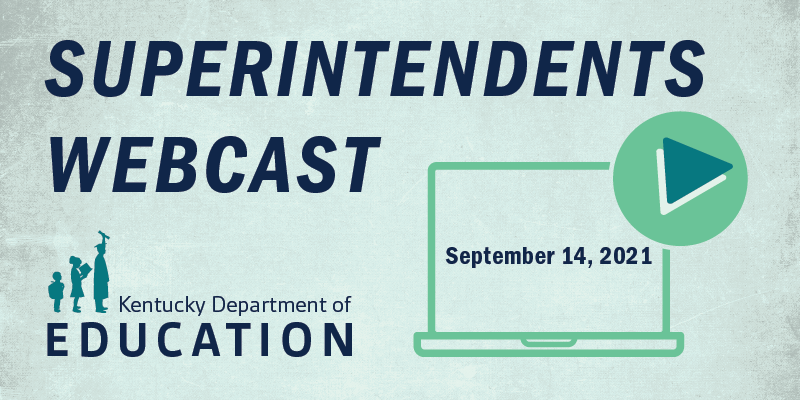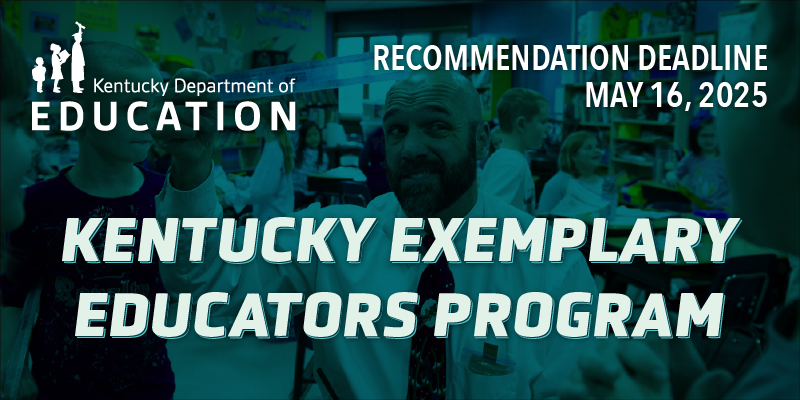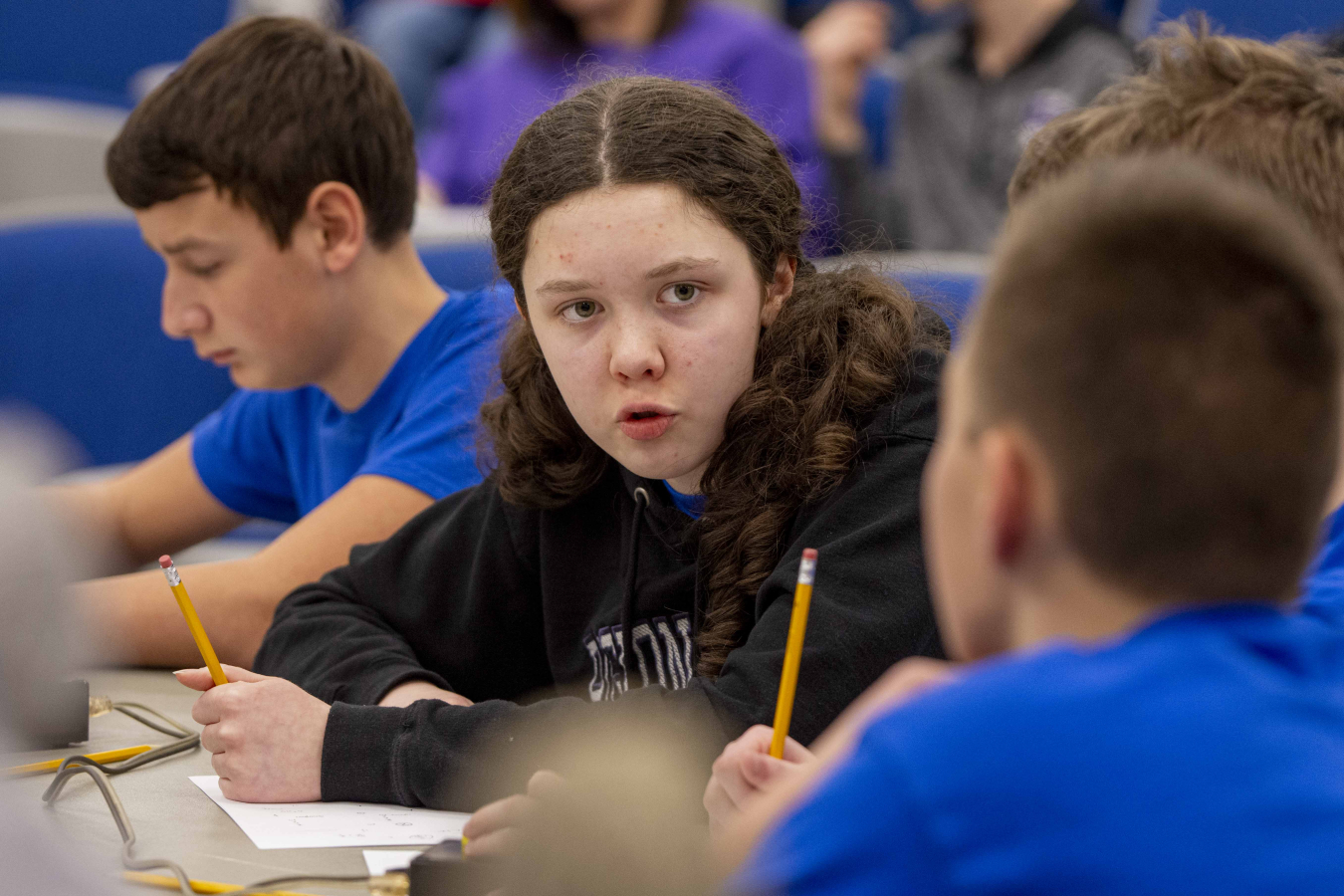 Following last week’s passage of Senate Bill (SB) 1, leadership from the Kentucky Department of Education (KDE) discussed the legislation’s impact on public schools during the Sept. 14 Superintendents Webcast.
Following last week’s passage of Senate Bill (SB) 1, leadership from the Kentucky Department of Education (KDE) discussed the legislation’s impact on public schools during the Sept. 14 Superintendents Webcast.
Gov. Andy Beshear called the state’s legislators together for a special session to work toward granting additional flexibilities and relief for Kentuckians through pandemic-related policies. However, SB 1 does not go far enough in providing the flexibility districts need with different school models, said Commissioner of Education Jason E. Glass.
The legislation also declares the Kentucky Board of Education’s emergency regulation mandating face masks in school facilities null, void and unenforceable effective five days after its passage.
“Further, the politically motivated effort to remove masking requirements in public schools weakens our virus mitigation efforts as a state at the very time they are needed most,” Glass said in a statement last Thursday.
“This is not the time to relax any of our virus mitigation strategies,” Glass reiterated during Tuesday’s webcast. “Effectively, the legislature deferred to you as school leaders and your boards of education, the power to make decisions around public health for your children, your community and your school district.
“At the same time, they micromanaged and fenced you in on a lot of educational decisions.”
In the wake of SB 1, KDE staff are putting together guidance surrounding how the legislation impacts schools. Glass expects this guidance to be released early next week.
KDE Vaccine Incentive Program
On Sept. 10, KDE announced it will use up to $8.8 million in Elementary and Secondary School Emergency Relief (ESSER) funds to reimburse districts that have rewarded staff members who elected to get vaccinated.
“We are recognizing those employees who took the time and effort already to obtain their vaccination,” said KDE Associate Commissioner Robin Kinney. “We are also trying to incentivize those employees who have not already done so and encourage them to get vaccinated.”
All current full- and part-time public school employees are eligible for a one-time vaccination incentive payment of $100 after being fully vaccinated against COVID-19, if their district elects to participate in KDE’s vaccine incentive program. This reimbursement is for employees who previously have been vaccinated and those who will be fully vaccinated by Dec. 1. There will be enough funding to reimburse districts for approximately 88,000 local school district staff.
Districts must pay employees first to receive reimbursement from KDE. Districts are strongly encouraged to consider providing additional funds that match the amount provided by KDE, but a financial match is not required for participation.
“Our public health officials continue to remind us that the very best thing we can do is to increase our vaccination numbers to slow the spread of the virus,” Kinney said. “Of course, this allows us to stay open for in-person instruction and also is a benefit to our communities as a whole.”
For logistical questions regarding the vaccination incentive payment, email KDE’s COVID-19 mailbox. KDE will provide additional details on the vaccine incentive program in an upcoming webcast for finance officers, Kinney said.
Quarantine and Contact Tracing
Asked if SB 1 updated guidelines for quarantining students and staff, Glass said districts are required to include details surrounding quarantining within their COVID-19 School Operations Plan. The bill requires school districts to submit a school operations plan to KDE for informational use only, as well as make it publicly available on the district’s website.
Glass recommended districts work in collaboration with local health departments in constructing their quarantine plans.
“Our recommendation is there be no difference between what the district’s plan is on quarantining and what the public health department recommends,” he said.
Districts still should conduct contact tracing after a student or staff member tests positive for COVID-19, said Kentucky Department for Public Health (DPH) Deputy Commissioner Dr. Connie White.
“As you’re trying to keep more students in school, if you’re not contact tracing, then you’re not knowing who’s being exposed, and that’s just your next outbreak,” she said. “This is not last year’s COVID. This is a COVID that is transmitted so, so easily. … The more layers of mitigation you have in your school system, the safer your staff and your students will be.”
While there are no penalties for districts that choose to eliminate the use of contact tracing, they should consider the risk associated with the decision to remove it as a strategy, Glass said.
“We know that this virus will spread,” he said. “There are natural consequences to it and that means that people in your schools will get sick and continue to spread the virus in your community.”
Test-to-Stay Program
SB 1 calls on DPH to develop a COVID-19 test-to-stay model that school districts may use to minimize the impact of quarantining non-symptomatic students and staff.
During the webcast, superintendents learned more about the program from KDE Associate Commissioner Kelly Foster.
The test-to-stay model gives students who are exposed to COVID-19 at school the opportunity to test for the virus over the course of a pre-determined timeframe to decide if they can remain in the classroom or be required to quarantine.
Superintendents raised concerns with the program unintentionally allowing COVID-19 to continue spreading throughout a school. For example, a student may contract the virus but not test positive until later in their testing period.
“That’s why masking is so critical with test-to-stay,” explained White. “… Keeping the child (at school) not masked and testing is not a test-to-stay program.”
In other business, superintendents:
- Heard updates from Toni Konz Tatman, KDE’s chief communications officer. Announcements included details on the upcoming release of the School Report Card and the 2021 Kentucky Education Summit. Registration for the summit is free and open through Oct. 29. Konz Tatman also recognized the finalists for the 2021 Special Education Teacher of the Year and the recipients of the 2022 Kentucky Teacher of the Year awards; and
- Discussed current vaccination rates for children by county with DPH Deputy Commissioner White. DPH has developed a tool to allow Kentuckians to view vaccination rates in local communities.
MORE INFO …
- COVID-19 Relief Special Session KDE K-12 Policy Recommendations
- K-12 School COVID Testing Program
- Kentucky Teacher: “Special session underway, education-related bill discussed in Kentucky legislative committee”
- Kentucky Teacher: “Kentucky senate education committee changes SB 1, mirrored legislation approved in house committee”




Leave A Comment